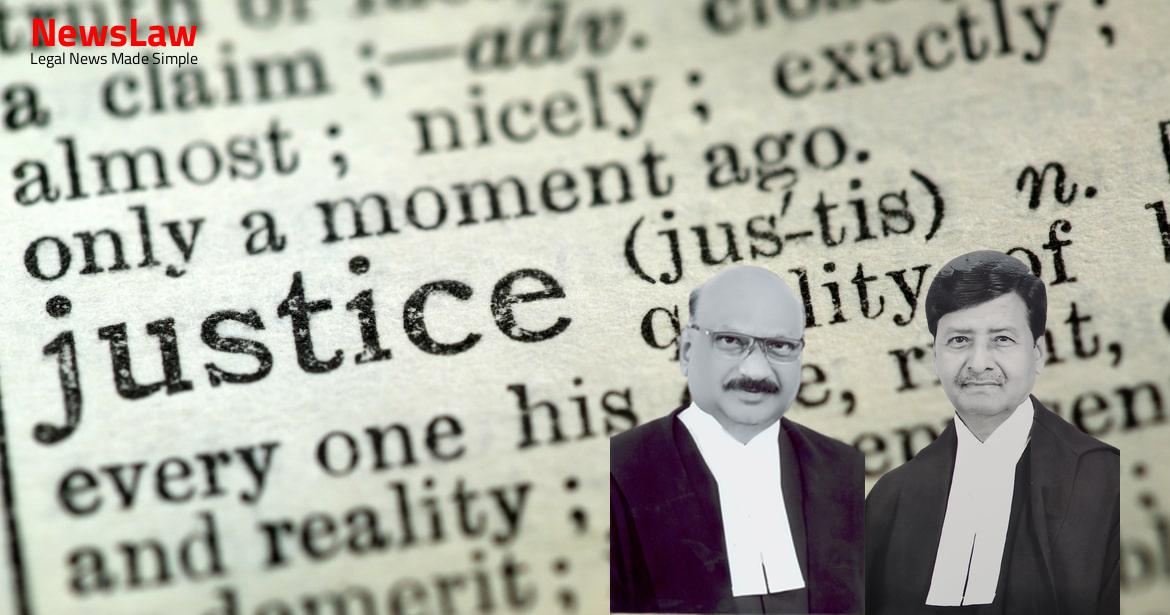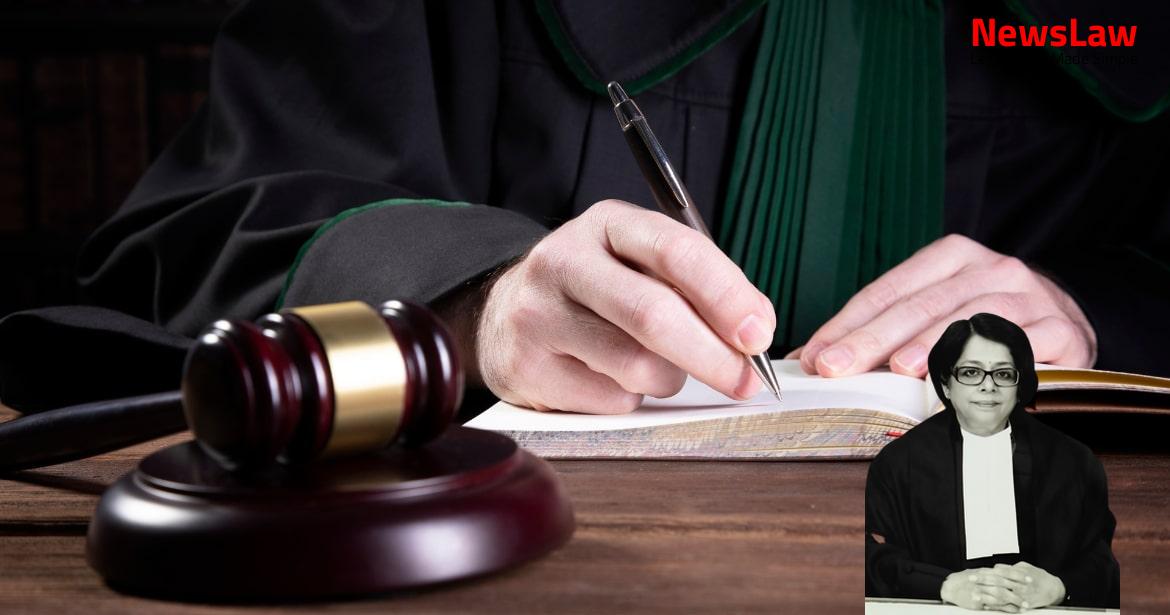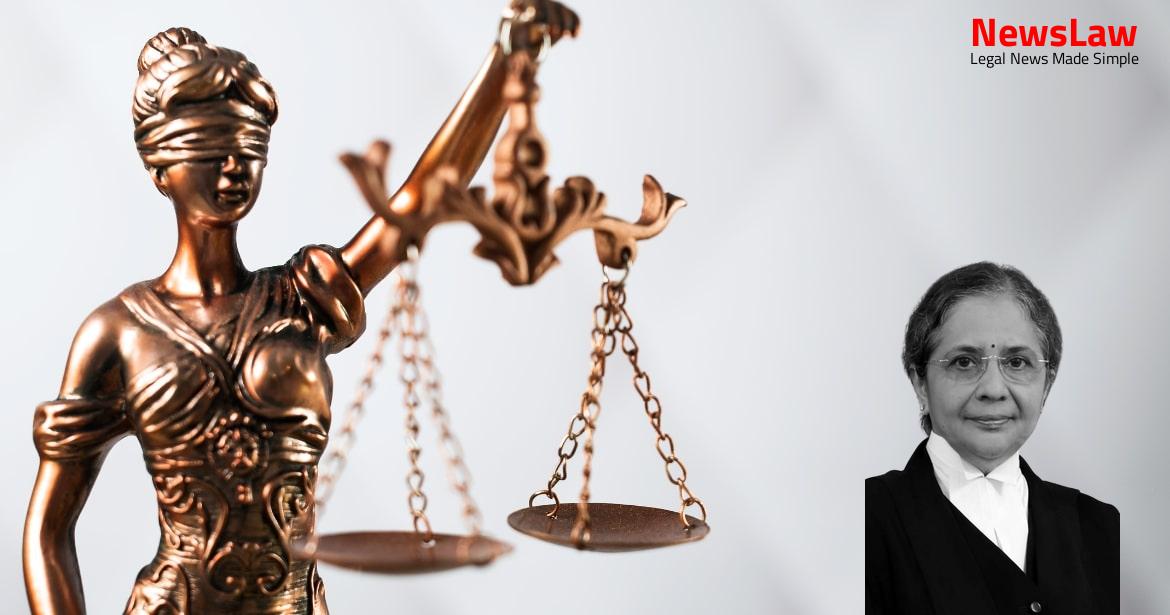REPORTABLE IN THE SUPREME COURT OF INDIA CIVIL APPELLATE JURISDICTION CIVIL APPEAL NO.
Also Read: https://newslaw.in/case-type/criminal/disclosure-and-recovery-of-weapon-a-key-factor-in-conviction/
2536-2537 OF 2022 CIVIL APPEAL NO. 2533 OF 2022 CIVIL APPEAL NO. 2538 OF 2022 CIVIL APPEAL NO. 2535 OF 2022 CIVIL APPEAL NO. 2512 OF 2022 CIVIL APPEAL NO. The need to lay down procedural guidelines was felt as several cases were noticed where candidates on the basis of false social status certificates obtained admissions to educational institutions which necessarily had the effect of depriving genuine candidates belonging to Scheduled Castes or Scheduled Tribes. The admission wrongly gained or appointment wrongly obtained on the basis of false social status certificate necessarily has the effect of depriving the genuine Scheduled Castes or Scheduled Tribes or OBC candidates as enjoined in the Constitution of the benefits conferred on them by the Constitution. For that purpose, it is necessary to streamline the procedure for the issuance of social status certificates, their scrutiny and their approval, which may be the following : The application for grant of social status certificate shall be made to the Revenue Sub- Divisional Officer and Deputy Collector or Deputy Commissioner and the certificate shall be issued 4 by such officer rather than at the Officer, Taluk or Mandal level.
All the State Governments shall constitute a Committee of three officers, namely, (I) an Additional or Joint Secretary or any officer high- er in rank of the Director of the department concerned, (II) the Director, Social Welfare/Tribal Welfare/Backward Class Welfare, as the case may be, and (III) in the case of Scheduled Castes another officer who has intimate knowledge in the verification and issuance of the social status certificates. He should also examine the parent, guardian or the candidate in relation to their caste etc. In case, the candidate seeks for an opportunity of hearing and claims an inquiry to be made in that behalf, the Director on receipt of such representation/reply shall convene the committee and the Joint/Additional Secretary as Chairperson who shall give reasonable opportunity to the candidate/parent/guardian to adduce all evidence in support of their claim. Notice contemplated in para 6 should be issued to the parents/guardian also in case candidate is minor to appear before the Committee with all evidence in his or their support of the claim for the social status certificates. So far as the State of Maharashtra is concerned, with effect from 18 October 2001, the Maharashtra Scheduled Castes, Scheduled Tribes, De-notified Tribes, (Vimukta Jatis), Nomadic Tribes, Other Backward Classes and Special Backward Category (Regulation of Issuance and Verification of) Caste Certificate Act, 2000 (for short ‘the 2000 Act’) was brought into force. The first level is of the Competent Authority issuing a caste certificate which 8 is valid only subject to verification and grant of validity certificate by the Scrutiny Committee constituted under the 2000 Act.
Rule 10 and Rule 12 of the ST Rules provide for the constitution of Vigilance Cells to assist the Scrutiny Committees for Scheduled Castes and Scheduled Tribes respectively for conducting an enquiry. There is some controversy about whether the vigilance cell constituted under the ST Rules has a power to conduct affinity test. The Full Bench of the Bombay High Court has interpreted the provisions of the 2000 Act as well as ST Rules. In the case of Anand, it was held that the affinity test is not the only criteria for deciding a caste claim based on a caste certificate issued by a Competent Authority. The question to be decided is whether paramount importance should be given to the affinity test while adjudicating upon a caste claim on the basis of a caste certificate issued by a Competent Authority. He submitted that the Scrutiny Committee could not mechanically refer a case to the Vigilance Cell without 13 recording satisfaction that the documents produced by the applicant were not sufficient to validate the caste claim.
He submitted that the view taken by this Court in the case of Anand is based on the interpretation of the 2000 Act and the ST Rules. Learned senior counsel also relied upon a decision of the Bombay High Court in Writ Petition No.4198 of 2005 dated 1 August 2018, which holds that in view of the decision of this Court in the case of Anand, the impugned judgment in the case of Shilpa Vishnu Thakur stands impliedly overruled. She submitted that the State Government cannot make an effort to indirectly modify the Third Schedule under the ST Order as the modification can be carried out only in accordance with Article 341 of the Constitution.
In the written submissions filed by him, he has contended that even if validity certificates have been issued by the Scrutiny Committee in case of near relatives of the applicant, the Scrutiny Committee has to apply an affinity test as an integral part of the process of assessing the entire evidence again to ensure that illegality is not perpetuated. It is submitted on behalf of the State Government that in a given case, the applicant may not be fully conversant with the traits, religious ceremonies of the tribe or deities etc. Deshpande, the learned senior counsel appearing in one of the connected matters urged that the Scrutiny Committee constituted under the 2000 Act is not a quasi-judicial authority. A co- ordinate Bench in the case of Dayaram, in paragraph 35 of its decision, held that the directions issued by this Court in paragraph 13 of Kumari Madhuri Patil’s case were issued as there was no statute governing the field of verification of caste claims of Scheduled Castes, Scheduled Tribes, Nomadic Tribes and Other Backward Classes. Under the scheme of the 2000 Act, an application for the grant of caste certificates is to be made to the Competent Authority as defined under Section 2(b).
As an order rejecting the application for the grant of a caste certificate is made appealable under sub-section (1) of Section 5, the appellate authority should have the benefit of the reasons for rejection. In view of the express language used by sub-section (2) of Section 4, the caste certificate issued by the Competent Authority does not conclusively establish the caste claim of the applicant. Sub-rule (6) of Rule 4 of the ST Rules provides that the Competent Authority shall verify the documents produced by the applicant with the original documents and if satisfied with the correctness of the information, documents and evidence furnished by the applicant, it shall issue a Scheduled Tribe certificate within 15 days from the date of receipt of the application.
Sub-section (1) of Section 10 contemplates that if an applicant, on the basis of a caste certificate issued by the Competent Authority obtains any benefit such as employment or admission to an educational institution, on cancellation of the caste certificate by the Scrutiny Committee, the admission secured to the educational institution or employment is required to be cancelled forthwith. We must note that under Rule 10, a 25 provision has been made for constituting a Vigilance Cell to assist the Scheduled Tribes Caste Scrutiny Committee in conducting an enquiry. (2) The applicant shall submit the following documents with his application for verification of his Scheduled Tribe Certificate :— (a) Original documents.— (i) the original Scheduled Tribe Certificate of the applicant alongwith one attested copy, (ii) an affidavit in Form F; (b) Documents of which, only attested copies are to be submitted in respect of applicant— (i) Primary School leaving certificate. 27 (3) The applicant shall submit original certificates and documents for verification whenever required by the Scrutiny Committee.” Rule 12 lays down the procedure to be followed by the Scrutiny Committee.
(5) The Vigilance Cell shall also examine the parents or guardian or the applicant for the purpose of verification of their Tribe, of the applicant. (8)If the Scrutiny Committee, on the basis of the Vigilance Cell report and other documents available, is not satisfied about the claim of the applicant, the Committee shall issue a show cause notice to the applicant and also serve a copy of the report of the Vigilance Officer by registered post with acknowledgment due. (b) After personal hearing, if the Scrutiny Committee is not satisfied about the genuineness of the claim and correctness of the Scheduled Tribe Certificate, it shall pass an order of cancellation and of confiscation of the Certificate and communicate the same to the Competent Authority for taking necessary entries in the register and for further necessary action. Before referring the case to the Vigilance Cell, application of mind to the material produced by the applicant is required and therefore, the application of mind must be reflected in the order sheets of the Scrutiny Committee. Therefore, the Full Bench may be right in saying that in every case, only on the basis of the surname Thakur, it cannot be concluded by the Scrutiny Committee that the applicant belongs to Scheduled Tribe Thakur notified in the Entry 44 of the Maharashtra list.
Therefore, whenever a caste claim regarding Thakur Scheduled Tribe is considered, the Caste Scrutiny Committee in every case should not mechanically refer the case to the Vigilance Cell for conducting an enquiry including affinity test. Moreover, an enquiry will have to be made by the Scrutiny Committee whether the validity certificate has been granted to the blood relative of the applicant by the concerned Scrutiny Committee after holding due enquiry and following due procedure.
If the record has been destroyed, the Scrutiny Committee can ascertain whether a due enquiry has been held on the basis of the decision of the Caste Scrutiny Committee by 34 which caste validity has been granted to the blood relative of the applicant. If, on the basis of the report of the Vigilance Cell, the Scrutiny Committee is satisfied that the person in 35 whose favour caste validity certificate has been issued is a blood relative of the applicant and lawful enquiry has been conducted before issuing the validity certificate, the Scrutiny Committee will have to issue validity certificate even if the applicant does not satisfy the affinity test.
Also Read: https://newslaw.in/case-type/civil/moratorium-application-in-insolvency-case/
If on the basis of the report of the Vigilance Cell and other evidence on record, the Scrutiny Committee comes to a conclusion that the caste claim is genuine, a caste validity certificate can be issued. If the report of the Vigilance Cell is against the applicant, his caste claim cannot be rejected only on the basis of the report of the Vigilance Cell without providing a copy of the report to the applicant and without giving him an opportunity of being heard on the report. If the applicant has stayed in bigger urban areas along with his family for decades or if his family has stayed in such urban areas for decades, the applicant may not have knowledge of the aforesaid facts.
For verification of social status as contemplated by sub-rule (4) of Rule 12 of the ST Rules, in a given case, affinity test can be resorted to by the Vigilance Cell. The Scrutiny Committee is not an adjudicating authority like a court or tribunal, but an administrative body which verifies the facts, investigates into a specific claim (of caste status) and ascertains whether the caste/tribal status claimed is correct or not. This entire scheme in Madhuri Patil
[(1994) 6 SCC 241 : 1994 SCC (L&S) 1349 : (1994) 28 ATC 259] will only continue till the legislature concerned makes an appropriate legislation in regard to verification of claims for caste status as SC/ST and issue of caste certificates, or in regard to verification of caste certificates already obtained by 40 candidates who seek the benefit of reservation, relying upon such caste certificates.”
(emphasis added) 28.
Therefore, the observations made in the said decision are in the context of powers of the Scrutiny Committee ordered to be created under the decision in the case of Kumari Madhuri Patil. A perusal of the decision in the case of Vijakumar shows that a Bench of two Hon’ble Judges dealt with issue of a tribe claim arising from the State of Maharashtra. If it fails the affinity test at either of these stages, the validity of the certificate cannot be sustained.” Hence, in view of the fact that the 2000 Act and Rules were not considered, the decision in the case of Vijakumar is certainly not a binding precedent for the proposition that in every case, the Scrutiny Committee is required to take recourse to the affinity test by referring the case to the Vigilance Cell. It is manifest from the aforeextracted paragraph that the genuineness of a caste claim has to be considered not only on a thorough examination of the documents submitted in support of the claim but also on the affinity test, 43 which would include the anthropological and ethnological traits, etc., of the applicant.
In fact, the mere fact that he is the first generation ever to attend school, some benefit of doubt in favour of the applicant may be given. Nevertheless, the claim by an applicant that he is a part of a Scheduled Tribe and is entitled to the benefit extended to that tribe, cannot per se be disregarded on the ground that his present traits do not match his tribe’s peculiar anthropological and ethnological traits, deity, rituals, customs, mode of marriage, death ceremonies, method of burial of dead bodies, etc. Paragraph 19 of the decision in the case of Anand reiterates the position that Vigilance Cell enquiry can be ordered only when 45 the Scrutiny Committee is not satisfied with the materials produced by the applicant. If the Scrutiny Committee, after holding an enquiry is satisfied with the material produced on record, without referring the case to the Vigilance Cell, the Caste Scrutiny Committee is under a mandate to grant validity to the caste certificate. (ii)(a) In cases where the documents produced by a person claiming to be belonging to a particular caste satisfy the requirement, for example, in the case of “Thakur”, if all the documents produced/filed and relied upon by a candidate denote his caste as “Thakur” then, without validating the caste claim with reference to the “crucial affinity test”, should the caste claim be validated or not? In clause (ii) (a) of paragraph 40, the Full Bench records that the Scrutiny Committee must have regard to the entire body of evidence, including on the question as to whether the applicant has satisfied the affinity test. In clause (c) of the same paragraph, the Full Bench of the High Court also holds that even if the applicant partially satisfies the affinity test, depending upon the nature of the evidence on record, the Scrutiny Committee has power to validate the claim. Thus, to conclude, we hold that: (a) Only when the Scrutiny Committee after holding an enquiry is not satisfied with the material produced by the applicant, the case can be referred to Vigilance Cell. (b)
Also Read: https://newslaw.in/case-type/criminal/legal-analysis-juvenile-justice-act-and-incarceration-period/
For the reasons which we have recorded, affinity test cannot be conclusive either way. (SANJAY KISHAN KAUL)…………………J.
Case Title: MAH.ADIWASI THAKUR JAMAT SWARAKSHAN SAMITI Vs. THE STATE OF MAHARASHTRA (2023 INSC 286)
Case Number: C.A. No.-002502-002502 / 2022



